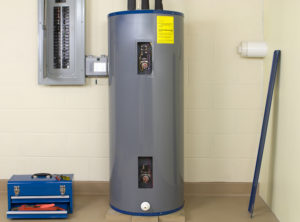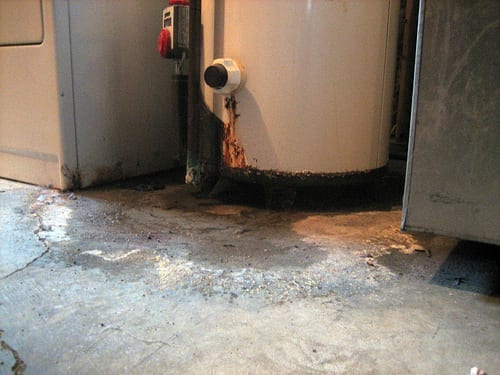Essential Measures for Homeowners Dealing with Broken Heating Units
Essential Measures for Homeowners Dealing with Broken Heating Units
Blog Article
Do you find yourself searching for facts and techniques about What Do You Do When Your Water Heater Bursts??

Whether it lies in the cellar or a different area, damaged hot water heater can trigger stress. A basic system holds 80 gallons, so an overnight leakage will certainly bring about a flood. This leads to major building damage with soaked wall surfaces and also floorings. Besides, having no hot water supply is also bothersome. If you are dealing with these concerns, take note of the following:
Turn Off Power Source
Before calling the plumber, closed off a gas water heating system by transforming the temperature level dial. This will certainly prevent electrocution, especially if there is a leak as water is a conductor. Generally, the heating element shuts off when the water strikes a details temperature level.
Cut Off the Cold Water Supply
Cut off the containers tap water supply from the source. This goes from your major water line right into the storage tank. When your tank remains in good condition, the cold water stops filling up when the container is full. Given that it is leaking, the water will certainly continue to move. Close the valve located at the top of the heating unit. Revolve this clockwise to shut it off. You need to turn off that primary water supply line outside your residential property if you can not locate it or reach it.
Call the Plumber
After doing the initial two safety and security steps, you need to call your plumber to come right away to fix a burst water heating system. There are typically indicators that your aging water heating unit has debris accumulation in the inside.
Don't await significant flooding to call the plumber. Already, you will certainly have to invest more to restore your residential or commercial property. Instead, as quickly as you identify these indicators, have actually a professional come to examine your water heater say thanks to. Normally, hot water heater have a life-span of regarding 8 to 12 years. With routine assessment as well as maintenance, you can prolong its life.
Tidy up Residential property
After calling the plumber, file damages by bearing in mind and images so you can claim your house owner's insurance. From there, start the prompt cleanup. Take out any important items to prevent additional saturating. After that, remove any standing water to avoid mold as well as mildew growth. If you have a completely submersible water pump, make use of that to drain pipes the water. Otherwise, the standard container method will also function. Attempt to wipe out whatever, including baseboards and wall surfaces. Keep them running to maintain air distributing if you have an electric follower as well as dehumidifier. This will aid discourage mold development.
Bear in mind, if you discover any kind of concerns with your hot water heater, call the pros immediately. You can not take this trouble gently because a defective thermostat can increase water temperature to a precariously high level, leading to unintended burns. A broken heating unit stress safety valve can also create an explosion. For ideal results, obtain an annual check so your device gets evaluated, cleaned up, drained pipes, as well as re-filled, guaranteeing optimum performance.
Whether it is situated in the basement or a different space, broken water heating units can cause stress and anxiety. Before calling the plumber, shut off a gas water heater by turning the temperature dial. After doing the very first two safety and security actions, you have to call your plumber to come right away to take care of a burst water heating system. If you have a completely submersible water pump, use that to drain the water. Remember, if you notice any kind of problems with your water heating unit, call the pros right away.
8 REASONS YOUR HOT WATER HEATER IS NOT WORKING & HOW TO FIX
Water Heater Problems & Solutions
Loose or Damaged In-Line Valve
Unlike a water leak near the bottom of your water tank, a water leak on top of your system can be easily fixed. A common cause of water tank leaks includes a loose in-line valve. This is a handle that is located at the top of the water tank that is engineered to activate or deactivate the flow of water. To fix this problem, you will need to secure the nut that holds the ball or in-line valve in its location. If the leak becomes more severe once it is tightened, you will be required to travel to your local hardware store to purchase a new in-line valve for your water heater.
Damaged Pressure Relief Valve
Most types of water heaters are equipped with a pressure relief valve that is engineered to discharge pressure from the water tank when it becomes too high. If this valve on top of your water heater begins to leak, we recommend purchasing a new one online or from your local store. The process of removing and replacing pressure relief valves is not complicated.
No Warm Water
If you have an electric water heater in your home, the most typical cause of a lack of warm water is a broken heating element. Your water heater is equipped with two heating elements that are tasked with heating incoming water in the water tank. Once a heating element begins to malfunction, you will have little to no hot water to use for showering, cleaning, and laundry.
Low Supply of Hot Water
Are you continuously running out of warm water? This issue may be a byproduct of a cracked dip tube. This tube is engineered to push cold water to the base of your water tank to be heated. Once a crack or hole begins to form in the dip tube, the incoming supply of cold water may be released near the top or middle of your tank. As a result, the cold water on top of the tank will be sent to the faucets and showers in your house. This hot water heater problem can only be fixed by replacing the dip tube on your system. Since the process of installing a new dip tube is complex, we recommend calling a certified technician for help.
A low supply of warm water may also be a signal of excess sediment buildup in your water tank. As your water heater reaches the middle of its life cycle, minerals in water including magnesium and calcium will begin to collect at the base of the water tank. As the minerals continue to grow, there will be less room in the water tank to store hot water. To resolve this problem, flush your water heater to remove the excess minerals.
Water is Too Warm or Cold
If the water in your shower feels uncomfortable hot or cold, you can adjust the temperature of your water by changing the settings on your thermostat. Setting the temperature to 120 degrees Fahrenheit may help you save money on your utility bills. This is an excellent temperature to use if you’re worried about scalding or skin irritation. Does this temperature feel too cold? You may also adjust the thermostat to 140 degrees Fahrenheit to make your showers more pleasant. If your hot water heater is not working when you change the temperature, this is an indicator of a broken thermostat. Immediately find a certified plumbing or heating contractor in your area to repair or replace your thermostat.
Low Water Pressure
Low water pressure is not always caused by a malfunctioning water heater. If you live in an older home with smaller water pipes, the flow of water will be restricted prior to reaching our kitchen or bathroom skins. The only way to eliminate this hot water heater problem is to connect new ¾-inch water lines to your system. Another type of problem that may negatively impact your water pressure includes calcium deposits in water pipes.
As magnesium and calcium begin to form in your pipes, the diameter of your water lines will become smaller. As a result, the warm water from your water heater will not be able to travel in an efficient manner to your sinks or appliances. Since the process of replacing water pipes includes removing drywall, an average homeowner that does not have a plumbing license will not be able to fix this hot water heater problem.
https://www.wmhendersoninc.com/blog/8-reasons-your-water-heater-is-not-working-how-to-fix/

I stumbled upon that piece of writing about Broken Water Heaters while scouting around the web. Enjoyed reading our blog posting? Please share it. Let others check it out. Kudos for your time. Kindly come by our site back soon.
Recurring Service Plans Report this page